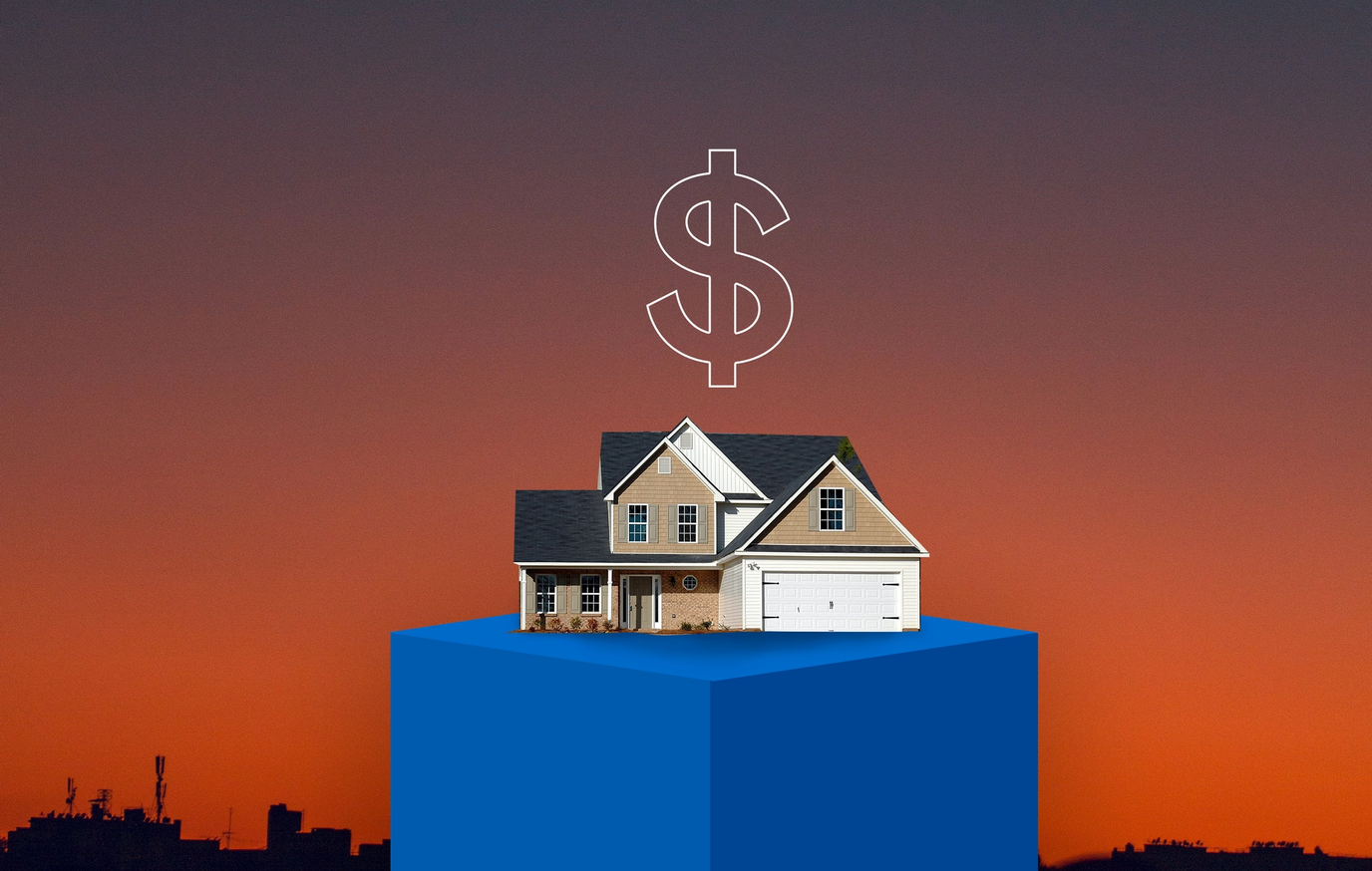Back
Mortgage vs home equity loan: Differences and similarities
5 min read

Written By
Dan Bucherer
Rounding it up
If you own a home, or soon will, it’s important you know about the differences between mortgages and home equity loans.
Mortgages help you pay for a home, spreading principal and interest payments over several decades to defray the cost.
Home equity loans use the value of your home as collateral and offer you cash.
Both products can help your credit score if repaid on time.
Many Canadians strive for home ownership; having a space of your own where you can do whatever you want, however you want. Paint that bathroom pink. Get that in-ground pool. The home is your oyster. And while home ownership may be within reach for some, it’s less likely you’ll be able to purchase a place fully in cash. That’s where mortgages come in; banks and financial institutions offer these loans to help you pay for that dream home over time.
They also offer home equity loans, which draw on the value of your place in case you need some extra cash to pay for that in-ground pool installation. These two products are the same in many ways and also, very different. Let’s take a look at a few of these similarities and differences and evaluate how you can use them to your advantage.
First of all, what is a mortgage?
It’s likely that you already have a basic understanding of what a mortgage is. In essence, a bank or financial institution pays for your home with the understanding that you will repay the principal and interest over the life of the loan. For example, you find your dream home in a quaint Toronto suburb and get preapproved for a $500,000 five year mortgage that’s amortized over 25 years (this is the typical style in the Canadian mortgage system). You move into your home and make 300 monthly payments of principal and interest. At the end of the five year period, you refinance the loan balance and continue paying.
SPEND SMARTER. SAVE FASTER
You can get a mortgage from various types of institutions, from banks to credit unions. You’ll need to work with a professional to complete a process called pre-approval beforehand, whereby you’ll get an accurate picture of what you can afford.
Canadian mortgages are also portable. Let’s say you get a mortgage for that Toronto suburb home, but decide to move to Montreal. In that case, you can take your existing mortgage and apply it to your Montreal home, then refinance any overage into a new loan.
Mortgages are closely regulated by the Canadian Mortgage and Housing Corporation (CMHC) as are the bankers that offer them, known as brokers. The terms of your mortgage loan will be determined by a number of factors, including your credit history, how much you can initially put down, and the value of the property.
What about home equity loans?
Home equity is the difference between the value of your home and the balance due on your mortgage. So, if your home is worth $500,000 and your remaining loan balance is $400,000, you have $100,000 in home equity. Home equity loans allow you to borrow against the value of your house to get cash for anything you’d like.
However, this money comes with a price. Just like taking out the original mortgage for your home, taking out a home equity loan costs money. You’ll have to deduct the fees from the size of the loan you can take out; these include title fees, insurance payments, and often, the cost of an appraisal.
"You can get a mortgage from various types of institutions, from banks to credit unions."
There are two types of home equity loans that can help you meet your goals. The first is essentially a second mortgage. A financial institution will take out a lien on your property and in exchange, give you the balance of your loan. You’ll repay it just like you would your original mortgage. You’re permitted to take up to 80% of the net value of your home as a home equity loan with either fixed or variable interest rates, and the proceeds of the loan will be deposited into your bank account as a lump sum.
The other type of home equity loan is called a home equity line of credit or HELOC. This type of loan operates quite a bit like a credit card. The bank gives you a line of credit from which you take as much as you’d like up to your limit. Here, you can usually borrow between 65-80% of the value of your home. The interest rate, however, is variable and fluctuates quite a bit with the market.
So I can use the money for anything?
Technically yes, you could use the money for anything. But remember, you are borrowing money against your home — the place you live, raise a family, and build your life. Consequently, it might not be the best idea to pay for a vacation or that boat you’ve always wanted with the proceeds from your home equity loan.
Nevertheless, there are a number of ways that you can use home equity to finance things that may truly benefit your life and financial well-being. Many people take out home equity loans or lines of credit to fund renovations, which can raise their property value. Others use the funds to install pools or purchase new furniture. So yes, you really can use the proceeds for anything you like, but you should review how to best use your funds before committing to a long term financial contract.
SPEND SMARTER. SAVE FASTER
How do mortgages and home equity loans affect my credit?
As long as both mortgages and home equity loans are repaid in full and on time, they can give your credit score an incredible boost. Both can help raise your credit score because your punctual repayment shows commitment and financial prowess. However, you may notice an initial dip, and with first mortgages, that dip can be particularly harsh. When that happens, take a deep breath, relax, and find peace in knowing your score will eventually recover and even improve.
Do your homework
There are some great resources out there designed to help Canadians plan, shop for, and benefit from mortgages and home equity loans. Take time to look through these resources, because taking out either of these products can have broad, far reaching consequences — positive or negative.
Additionally, develop a budget and financial plan, and do the math to find out whether owning is even in your interest (as opposed to renting). Equipped with this information, both mortgages and home equity loans can help you reach your financial and life goals.

About the author
Dan is a runner and writer living in the Washington, D.C. area, where he currently works for a financial services trade association as the Communications Director.
Read more about this author